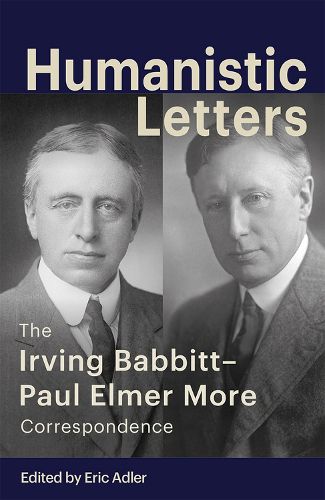Readings Newsletter
Become a Readings Member to make your shopping experience even easier.
Sign in or sign up for free!
You’re not far away from qualifying for FREE standard shipping within Australia
You’ve qualified for FREE standard shipping within Australia
The cart is loading…






Irving Babbitt (1865-1933) and Paul Elmer More (1864-1937) were the leading lights of the New Humanism, a consequential movement of literary and social criticism in America. Through their writings on literary, educational, cultural, religious, and political topics, they influenced countless important thinkers, such as T.S. Eliot, C.S. Lewis, Russell Kirk, Benedetto Croce, Werner Jaeger, and George Will. Their work became the source of heated public debates in the 1920s and early 1930s. The belligerent criticisms of Babbitt and More-composed by such famous intellectuals as Ernest Hemmingway and H.L. Mencken-have ensured that the New Humanism has seldom been properly appreciated. Humanistic Letters helps remedy this problem, by providing for the first time the extant correspondence of Babbitt and More, which gets to the heart of their intellectual project.
$9.00 standard shipping within Australia
FREE standard shipping within Australia for orders over $100.00
Express & International shipping calculated at checkout
Irving Babbitt (1865-1933) and Paul Elmer More (1864-1937) were the leading lights of the New Humanism, a consequential movement of literary and social criticism in America. Through their writings on literary, educational, cultural, religious, and political topics, they influenced countless important thinkers, such as T.S. Eliot, C.S. Lewis, Russell Kirk, Benedetto Croce, Werner Jaeger, and George Will. Their work became the source of heated public debates in the 1920s and early 1930s. The belligerent criticisms of Babbitt and More-composed by such famous intellectuals as Ernest Hemmingway and H.L. Mencken-have ensured that the New Humanism has seldom been properly appreciated. Humanistic Letters helps remedy this problem, by providing for the first time the extant correspondence of Babbitt and More, which gets to the heart of their intellectual project.